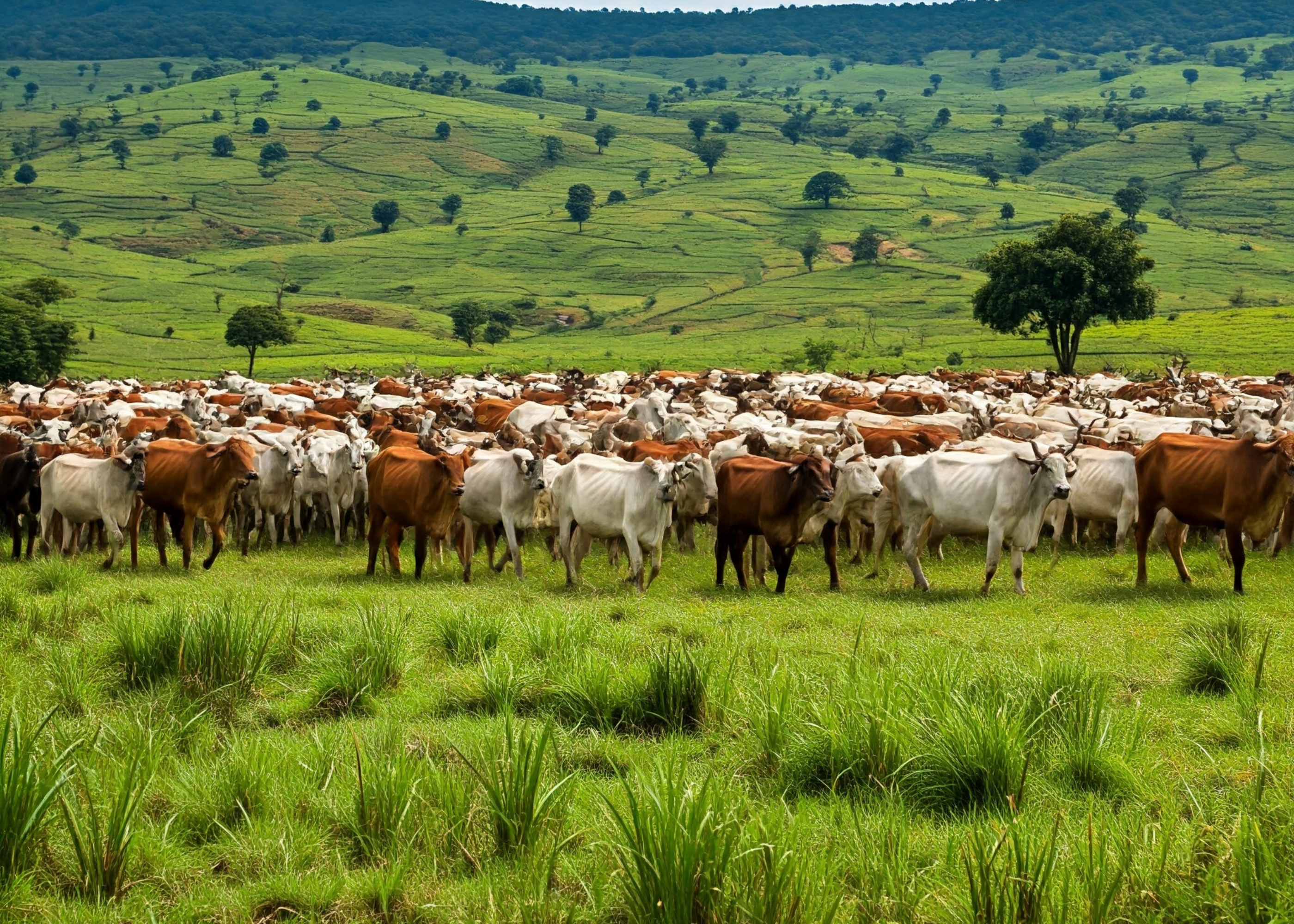News in Brief:
– Nigeria’s livestock sector, a vital contributor to the economy, faces numerous challenges such as disease outbreaks, infrastructure deficits, and limited financing.
– Experts advocate for professional leadership at the helm of new livestock ministry, infrastructure development, financial support, and learning from global best practices to unlock the sector’s full potential.
Nigeria’s livestock sector is a cornerstone of its agricultural economy and one of the top 10 contributors to its gross domestic product (GDP). It provides a substantial portion of the nation’s protein intake, primarily through meat, dairy, and leather products. The sector has a diverse livestock population, including millions of chickens, goats, sheep, cattle, and pigs.
However, the sector is beset by numerous challenges that hinder its growth and potential. These include disease outbreaks, infrastructure deficiencies regarding transportation, housing, and insecurity, as well as limited access to finance for the number of smallholder farmers engaged in the sector.
Therefore, to remedy some of the specific challenges hindering the sector from appreciable growth, the Tinubu-led government created the Federal Ministry of Livestock Development (FMLD) in July 2024.
It was initially managed by Dr. Chinyere Akujobi, the department’s permanent secretary, until the recent appointment of Alhaji Idi Mukhtar as the substantive minister in charge.
Upon resumption of office, the new minister pledged to transform the sector into a ‘sustainable, resilient, and inclusive ecosystem for the private sector actors to thrive.’
Expert insights and recommendations
Analysts and experts in the field have suggested ways to boost the viability of the new ministry. In an exclusive interview with this publication, Dr Ogunde Oladimeji Wallace, a livestock specialist with a doctorate in Veterinary Medicine from the University of Ibadan, shared his views.
Remarking on the minister’s background as a livestock farmer, Wallace said that he appears competent due to his experience managing large cattle populations, including foreign breeds.
“I mean, looking at what he’s doing on his farm, breeds hope for livestock development in Nigeria. Personally, there are concerns about nepotism, which could undermine progress. Policies must focus on inclusivity, professionalism, and long-term planning,” he said.
However, the livestock expert noted existing challenges and lack of solutions from past leaders, as factors that may hinder significant immediate results.
Additionally, he suggested that the ministry be replicated at the state level, with state governments collaborating with the federal government to robustly develop livestock predominant in their localities, meeting local demand and exporting surplus.
“I’d also expect massive employment for livestock professionals like veterinarians and animal scientists, with all 774 LGAs having resident officials to provide animal healthcare and extension services,” he added.
Furthermore, he suggested other actions to be taken by the new minister including establishing robust disease surveillance infrastructure, including quarantine services, research, and community training on reportable diseases and their economic impacts.
Leadership and governance
The issue of cronyism and nepotism has been raised over time as one of the factors that have hindered growth in many sectors of the Nigerian professional space. Dr. Wallace therefore cautioned against this as the ministry takes off.
He effectively hammered on the need to let livestock professionals, not politicians, run the ministry for effective implementation of its mandate.
Other recommendations in this regard include strong legislation to enable the ministry’s smooth operation, avoiding interference from sister professional bodies, such as the Pharmacy Council of Nigeria (PCN), which regulates veterinary drugs and biologicals.
He also advocated for collaboration with financial institutions (the Central Bank of Nigeria (CBN), Agricultural Development Bank (ADB), Bank of Industry (BOI), and Microfinance Banks) to provide soft loans to farmers, boosting production and training in diverse livestock enterprises (poultry, fishery, ruminants, piggery, rabbitry, snailery, etc.).
Additionally, he recommended the employment of more veterinarians nationwide, while subsidising feed prices, proper monitoring of institutions providing credit to farmers, as well as the regulation of herders’ activities.
Learning from global best practices
Wallace said Nigeria needs to borrow a leaf from countries like Ethiopia, Botswana and Australia in boosting the overall productivity of its livestock sector. He says it is necessary because those countries have a proper and comprehensive record of their development.
“It shows in the GDP of these countries. Generating revenue isn’t just the goal, how to keep sustaining the industry should be a major priority too,” the veterinarian said.
Policy and regulatory framework
It is noteworthy that Ethiopia and Botswana have implemented policies to boost their livestock sectors. While Ethiopia focuses on modernisation, feed industry development, disease control, and pastoralist support, Botswana prioritises community-based natural resource management, sustainable development, veterinary services, and rangeland management.
Australia, on the other hand, boasts a globally recognised livestock sector for its high-quality, sustainable, and ethical practices. One key factor contributing to its success is the Australian Standards for the Export of Livestock (ASEL). This stringent regulatory framework ensures that exported livestock meet the highest standards of animal welfare and biosecurity. This has led to increased demand for its livestock products across the world.
In conclusion, Dr Wallace believes these countries should serve as templates for Nigeria to copy to boost its livestock fortunes and enhance its food security capability.



